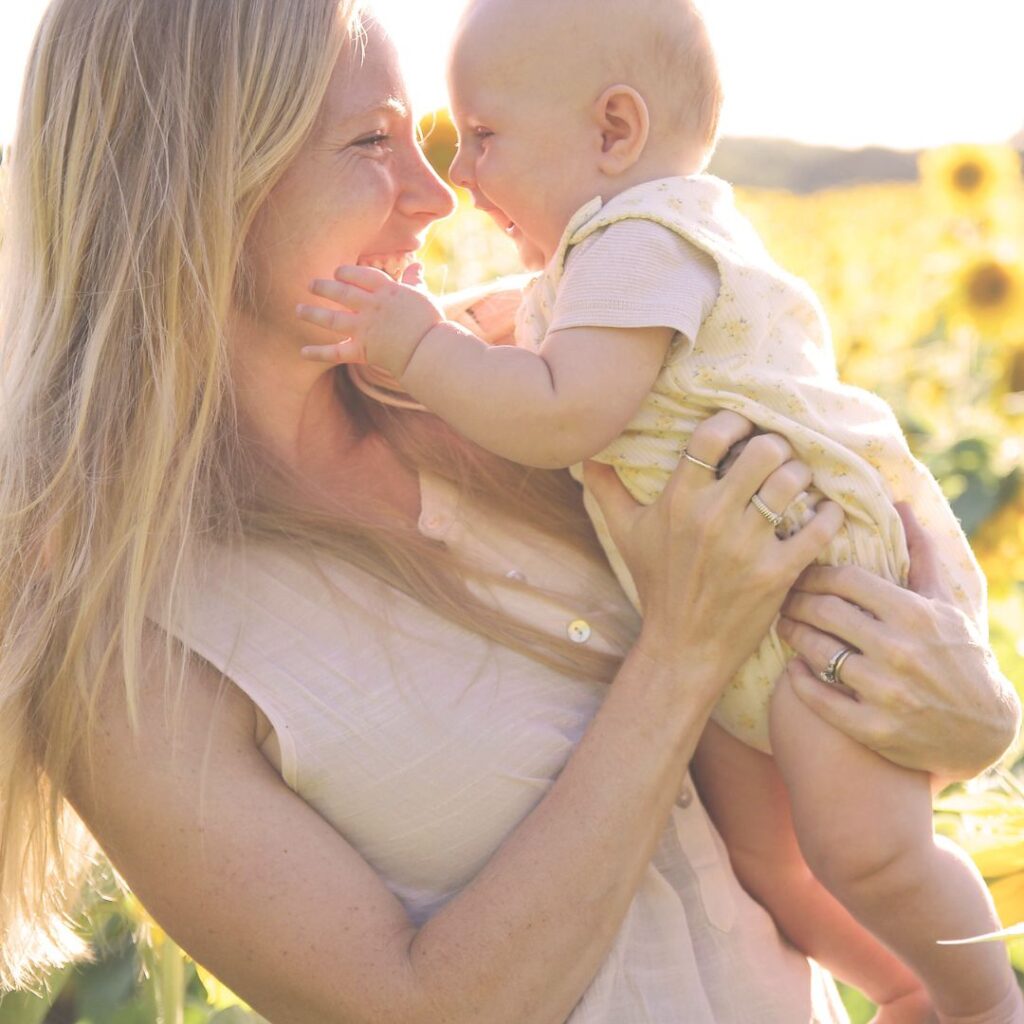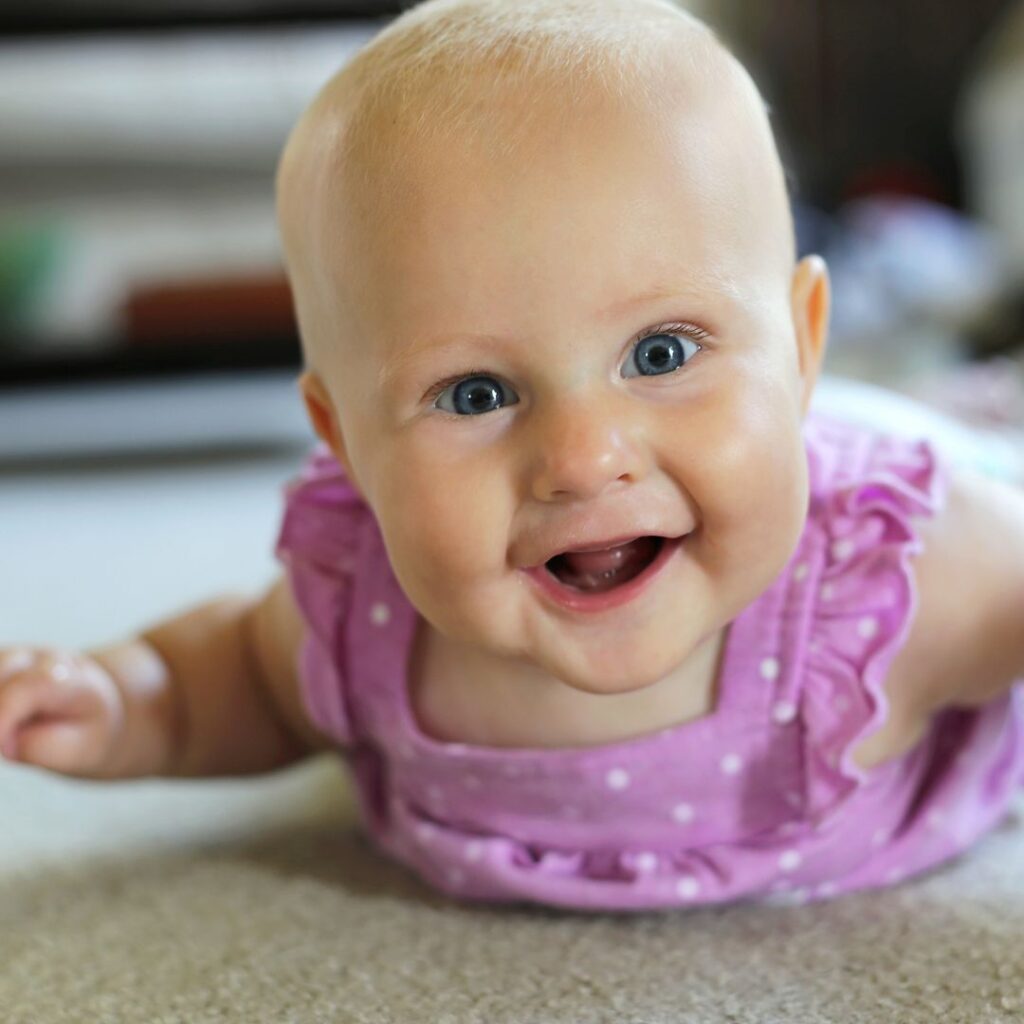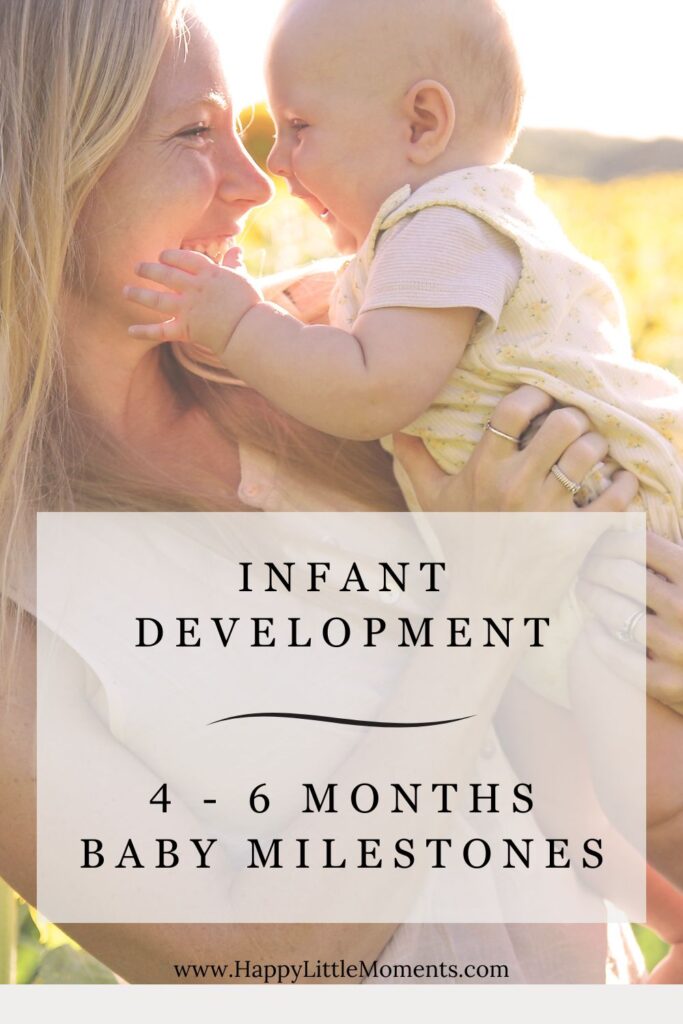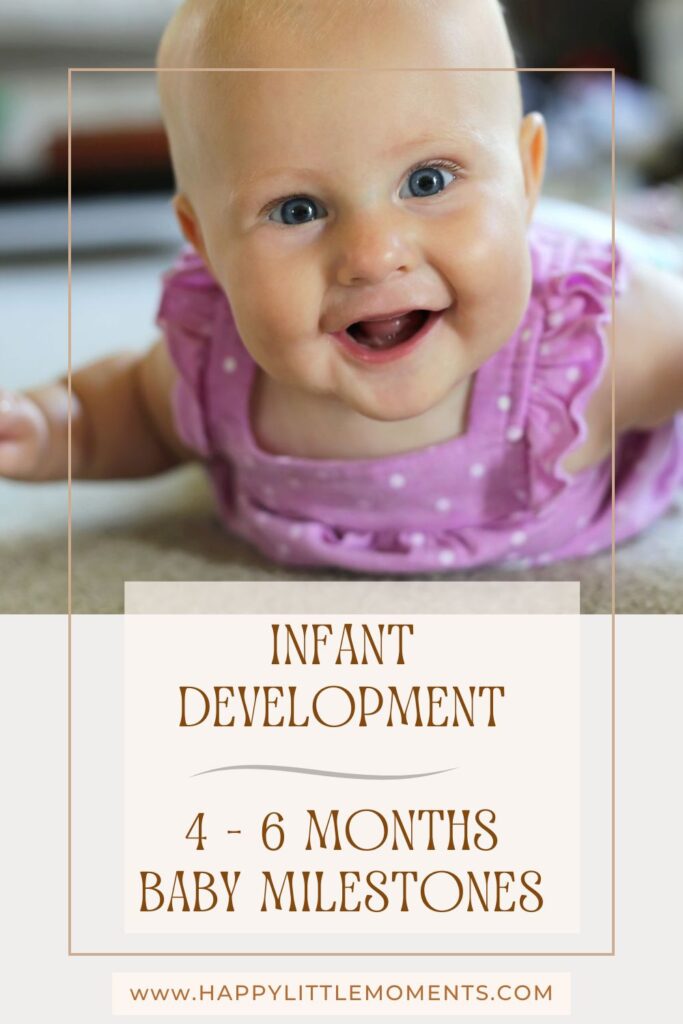Infancy is such an incredible time for the growth of your new baby, and the changes happen so quickly that it can feel like your baby is becoming a new person every day. In this post, we’ll explore the exciting milestones your baby may reach between 4 to 6 months. There’s so much to cover in these early stages that I’ve had to break it up into a few blog posts! Be sure to check out my post Infant Development: Birth – 4 Months Baby Milestones!
I remember when my first baby was born, people would always tell me, “Don’t blink!”—and they were right. One minute your baby is brand new, and suddenly you turn around and they’re rolling over, babbling, and grabbing everything in sight. It goes by fast. So take the time to soak in these moments.
When I became a mom, I quickly realized how little information is given to new parents about what to expect as their baby grows. Babies don’t come with instruction manuals, and it often feels like we’re left to figure it out on our own. Mothers have been doing this for thousands of years, and while that’s reassuring, it is also overwhelming.
In my situation, I was lucky to be surrounded by supportive women—mothers and early childhood educators—when my babies were young, which made a world of difference. Not everyone has that kind of community, so I hope this blog can provide some guidance for anyone feeling unsure about their baby’s development. Remember, every baby is different and progresses at a different pace. If you have concerns about your baby’s development, be sure to discuss it with your pediatrician.
But, let’s walk through these milestones together so you can feel confident and enjoy every new discovery your baby makes!

4 – 6 Months Baby Milestones: Physical Development
- Rolling Over: Around 3 to 4 months, many babies start rolling from front to back. This is a big milestone for our little ones and lots of tummy time helps your infant learn this skill. Rolling from back to front usually comes a bit later, around 6 to 7 months. It’s exciting to see your baby gain more control over their movements.
- Sitting with Support: By 4 to 5 months, babies often begin sitting with some help, like using a boppy or being propped up. Although they can sit briefly on their own, they might still tip over, so keep a close eye on them. Between 5 to 7 months, most babies can sit-up unassisted.
- Reaching and Grasping: At around 4 months, babies become more interested in grabbing toys. Their movements become more coordinated, and they may begin transferring objects between their hands. Be sure to provide age-appropriate toys and plenty of teethers. Babies explore everything with their mouths, and this is a necessary part of child development.
- Improved Head Control: By 3 to 4 months, babies typically have much better head control. They can hold their head steady and upright without support, allowing them to better see their surroundings.
- Building Muscles: At 4 months, babies may start pushing up on their arms during tummy time and kicking their legs more vigorously. These movements are helping them strengthen their muscles for crawling.
Cognitive Development
- Curiosity: Around 4 to 6 months, babies become much more curious about the world. They start grabbing at toys, watching their surroundings closely, and exploring new objects. This growing interest in everything around them is a sign that their brain is developing and learning rapidly. Fun fact: a child’s brain during the first few years of life is developing 1 Million synapses (or brain connections) per second!
- Understanding Cause and Effect: Babies at this stage begin to grasp the idea that their actions have results. For example, they might hit a toy and notice it makes a sound. This early understanding of cause and effect helps build problem-solving skills later on.
- Developing Object Permanence: Although it’s still early in development, babies around 6 months may begin looking for objects that are hidden or dropped. This shows they’re starting to understand that things still exist even when they can’t see them, a cognitive milestone called object permanence.

Social and Emotional Development
- Recognizing Familiar Faces: During this time, babies start to recognize and respond more to familiar faces, especially their parents and primary caregivers. They may be excited to see you or show a preference for parents or caregivers they see often.
- Laughing: Babies at this age may begin to laugh or giggle as you play with them. Playful games like peek-a-boo may make your baby laugh and also help strengthen your bond with your baby.
- Responding to Emotions: During this phase, babies also begin to smile back when someone smiles at them. They may also show frustration or boredom when they’re tired or overstimulated, giving you clearer signs of how they’re feeling.
Language and Communication Development
- Babbling: Around this age, babies start to experiment with sounds, combining consonants and vowels like “ba,” “da,” or “ma.” These early babbles are the first steps toward real speech, and it’s an exciting time as they find their voice and practice making new sounds.
- Baby “Conversations”: Babies begin to engage in simple back-and-forth “conversations.” They might mimic the sounds you make or pause and “respond” when you talk to them. This early form of communication helps them learn the rhythm of language and social interaction.
- Recognizing Names: By 4 to 6 months, babies may start to recognize their own name. You’ll notice that they might turn their head or show excitement when you call their name, showing they’re starting to make connections between words and their meaning.
Babies are fascinating, and it’s an amazing parenting experience to watch your baby grow right before your eyes. Every day, they will be able to do something new and often they may even feel like a new person each day. Remember to enjoy these moments because they don’t last forever.
I hope this post gave you helpful information about your infant’s 4 – 6 month baby milestones. Every baby is different and will learn new skills and about the world around them at their own pace. If you have any concerns about your baby’s development, be sure to talk to your pediatrician, who can give you guidance on what is truly within a normal range for infant development. Above all, trust your instincts as a new parent. And enjoy this time because it goes by so fast!
If you found this helpful, save this post for later! Click the below Pins to save to your Pinterest Account!



